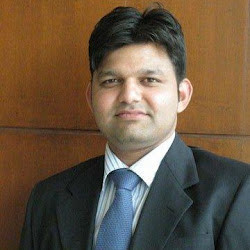- Bihar Infographics
- Infographic on Delhi Strong CM Candidates
- Infographic on Chief Ministers of Delhi
- Infographic on list of Chief Ministers of J and K
- Madhya Pradesh Infographics
- Tamil Nadu Infographics
- Jammu and Kashmir Infographics
- Delhi (DL) Infographics
- Infographic on Devendra Fadnavis and Narayan Rane
- Infographic on Devendra Gangadhar Fadnavis and Uddhav Thackeray
- Infographic on Captain Abhimanyu and Bhupinder Singh Hooda
- Jharkhand (JH) Infographics
- Haryana (HR) Infographics
- Maharashtra (MH) Infographic
- Uttar Pradesh (UP) Infographics
- Indian Lok Sabha
- Rajya Sabha
- Narendra Modi's Cabinet
Chief Ministers of Jammu and Kashmir
Ghulam Mohammed Sadiq
Ghulam Mohammed Sadiq was the first ever Chief Minister of Jammu and Kashmir. His tenure started on 30 March 1965 and continued till 12 December 1971 for a period of 6 years and 257 days. Prior to that,Syed Mir Qasim
Syed Mir Qasim of the Indian National Congress was the second individual to have been the Jammu and Kashmir CM. He ascended to the post on 12 December 1971 and his last day in office was 25 February 1975. As a statesman and politician, the mild-natured Qasim earned a high degree of respect. He had a number of virtues such as tenacity, courage, a cool and calm temperament, and sagacity.Sheikh Mohammed Abdullah
Known as Sher-e-Kashmir (Lion of Kashmir), Sheikh Mohammad was the founder of National Conference (NC). He was the Chief Minister of Jammu and Kashmir for two terms. His first term lasted for 2 years and 29 days – it started on 25 February 1975 and ended on 26 March 1977. He again became the CM on 9 July 1977 and stayed in that post till 8 September 1982, completing a term of 5 years and 61 days. Incidentally he also served as the PM of Jammu and Kashmir during 1948 after it became a part of Indian Union in 1947. However, Maharaja Hari Singh’s son Yuvraj Karan Singh – who happened to be the Sadr-i-Riyasat, dismissed him from this position on 8 August 1953. He was a major proponent of the self-rule for Kashmir.Farooq Abdullah
Farooq Abdullah, the son of Sheikh Abdullah, has served for the maximum number of occasions as the Chief Minister of Jammu and Kashmir. His first reign lasted only a year and 298 days, starting on 8 September 1982 and ending on 2 July 1984. He next became the Jammu and Kashmir CM for 3 years and 73 days on 7 November 1986 and his tenure came to an end on 19 January 1990. He again became the CM on 9 October 1996. This was his longest reign at 6 years and 9 days and went on till 18 October 2002. It was during Abdullah’s tenure as CM that Kashmir faced the rise in militancy with terrorists trained in Pakistan infiltrating and wrecking havoc in the state. There were several high profile kidnappings at this time as well.Ghulam Mohammad Shah
Ghulam Mohammad Shah was the CM of Jammu and Kashmir for a limited period of time – 1 year and 247 days. He was a member of the Awami National Conference when he rose to the post. Incidentally Farooq Abdullah, whom he succeeded as the chief minister, happened to be his brother-in-law. Before becoming the CM, he was also a leading member of National Conference.Mufti Mohammad Sayeed
Mufti Mohammad Sayeed became the Chief Minister of Jammu and Kashmir on 2 November 2000 and continued in that position till 2 November 2005. He represented the People’s Democratic Party (PDP), which had been established by him with the sole purpose of starting a dialogue, without any conditions, between the people of Kashmir and the Indian Government so that a solution to the Kashmir tangle could be found. He was also the first ever Muslim to have been the Union Minister for Home Affairs during 1989.Ghulam Nabi Azad
A member of the Indian National Congress, Ghulam Nabi Azad became the CM of Jammu and Kashmir on 2 November 2005. He continued in this position for 2 years and 252 days before tendering his resignation on 7 July 2008 due to the controversy surrounding his government’s plan to transfer some land to a board that owned a Hindu shrine. This led to vociferous protests that ultimately resulted in the withdrawal of the decision, which, in turn, was also protested by the Hindu population of the state. The chain of events finally led to communal clashes that claimed seven lives. The PDP withdrew its support thus leading to the fall of Azad’s government.Omar Abdullah
A scion of the famed Abdullah family, Omar is the Chief Minister of Jammu and Kashmir, since 5 January 2009. He was born on 10 March 1970 to Mollie and Farooq Abdullah at Rochford, Essex. His schooling took place at Burn Hall School in Srinagar and later on at Lawrence School, Sanawar.In the very first year of his chief ministry, Abdullah was accused of trying to cover up the death of two young women in Shopian, raped and murdered supposedly by members of Indian paramilitary forces.
The 2014 floods that virtually brought life to a standstill across the state was an area where the incumbent CM faced the flak for his handling of the situation. The common people were of the view that the government virtually did nothing and was not at all proactive. While stating that his administration was not ready to deal with such a massive flood, Omar stated that his government did the best it could with the resources that it had.
Omar Abdullah has a lot at stake during the forthcoming Assembly elections to Jammu and Kashmir Assembly.
Sources: Media reports
Last Updated on December 3, 2014



